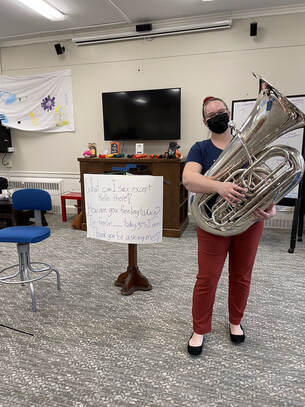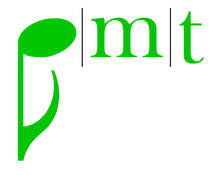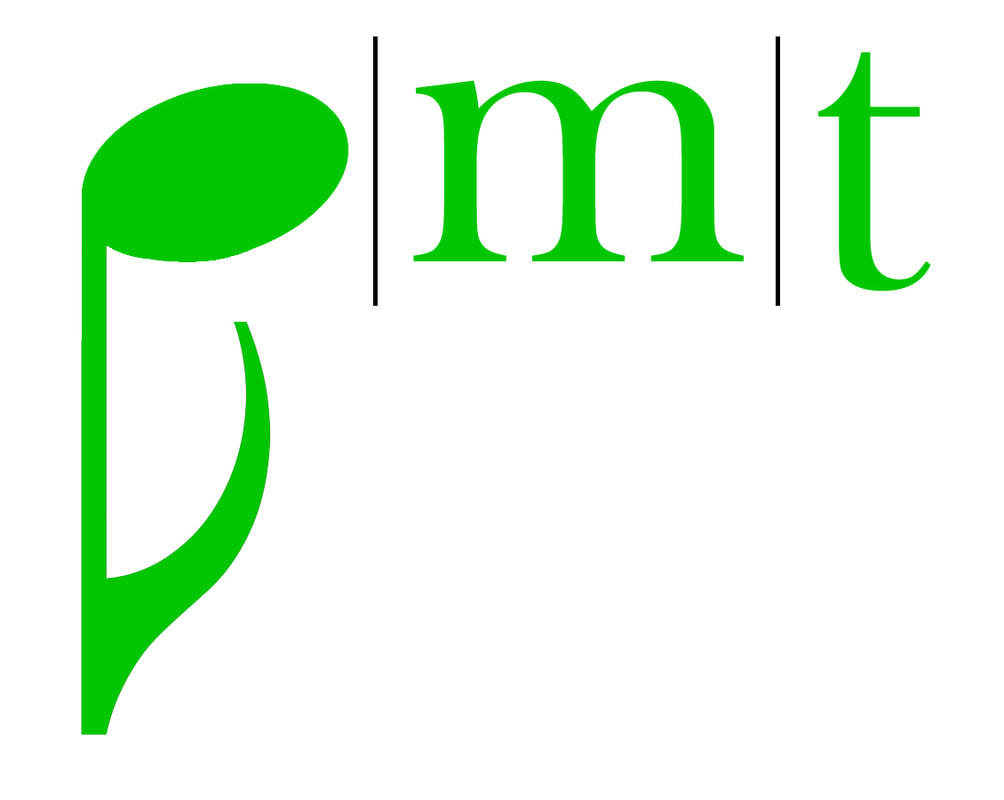 My name is Mary Kiefriter and I am the newest intern here at Piedmont Music Therapy! My main instrument is tuba and ever since I started college I wanted to incorporate it into my music therapy sessions. The tuba is a large brass instrument that weighs about 20 or 30 pounds, depending on the type and is the lowest pitched instrument of the brass family. At first, I had no clue how to do this, especially because most of my colleagues in music therapy classes were vocalists. Luckily I had a fantastic tuba professor at East Carolina University, Dr. Jarrod Williams, who learned about music therapy in order to help me best prepare for my career. Ear training became a part of my weekly lessons and I slowly but surely learned how to listen to a melody and figure it out on my own without looking at sheet music. After learning melodies we worked on learning some funky bass lines that I could play while clients could have the opportunity to improvise on different pitched instruments that sounded in the same key as the bass line I played. I first used tuba in a session during my first practicum experience in a Memory Care Unit at a nursing home. I learned the melodies of client preferred songs such as “Side by Side”, “This Land is Your Land” and “Sway” on tuba and led an intervention similar to “Name that Tune”. Using tuba for this intervention gave a fun twist to the session by listening to an instrument some clients had never seen or heard before. Using an instrument that was different increased the clients interest in the intervention which in turn increased their engagement allowing them to participate to the best of their abilities. My favorite time I have used tuba in a session was during my practicum at a rehabilitation center for adolescents with substance use disorders. The clients were instantly engaged and interested in my tuba and began to initiate social conversations with one another about the tuba and other instruments they played at school. Using your main instrument, especially if it is a brass or woodwind instrument, can be challenging. The biggest challenge of using tuba in music therapy sessions was figuring out how to be more efficient with my nonverbal cues and body language since I can not give verbal prompts while playing my brass instrument. I have found that using tuba or any other wind instrument is especially useful when working on goals such as increasing focus of attention and increasing impulse control because of the limited verbal prompts you can give. This is because the clients have to increase their focus on your body language and nonverbal cues. I am excited to continue using tuba in sessions and getting more creative in how I can use it to help clients reach their goals! Comment below some of your favorite songs you think would sound interesting on tuba.
0 Comments
Your comment will be posted after it is approved.
Leave a Reply. |
PMTProviding music therapy services for early childhood to older adults, music instruction and enrichment plus continuing music therapy education in Greater Charlotte Area of the Carolinas. Archives
May 2024
Categories
All
|
Piedmont Music Therapy is a 501(c)(3) status organization.
Piedmont Music Therapy accepts donations via venmo @piedmontmusictherapy or any amount through QuickBooks. Contact us to arrange an electronic pledge!
Main Location |
|


 RSS Feed
RSS Feed
